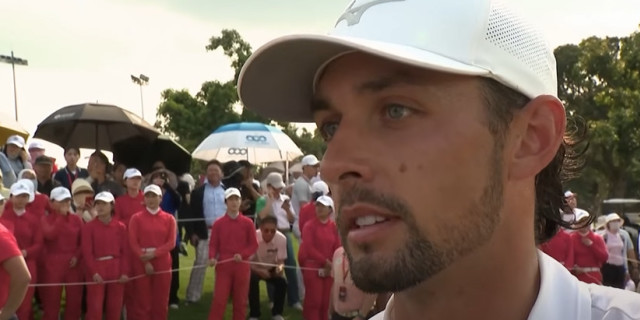
What is the Most Effective Way to Combat Slow Play in Golf? - Part 1
Golf may be as exciting as it has been for some time, but there is one issue that requires urgent rectification. On both an amateur and professional level, slow play is plaguing the game. Increasingly, a supposedly fun pastime is transformed to a tedious, frustrating affair as we wait for the group in front who refuse to let us through; as we watch our fellow golfers displaying little or no regard for golfing etiquette. In the professional game, notoriously slow golfers - such as Kevin Na and Ben Crane - consistently offend, and are consistently allowed to offend. Unfortunately, it permeates every level of the game. At the Hyundai Tournament of Champions last week, Steve Stricker and Jonathan Byrd took over four hours to complete their final round, which prompted Luke Donald to tweet: “slow play is killing golf.” But how do we solve the issue? Is it something that can be resolved with policy and legislation, or does it require a fundamental change, on all levels, in mindset and the emphasis placed on etiquette and respect for others?
Professional golf
First and foremost, slow play must be remedied on the professional tours. Club and amateur golfers rightfully try to put into practice what they see on the television, but this opens the door to unwelcome traits: amateur golfers looking at each putt from every possible angle, for example. Luke Donald, as part of his twitter rant, went on to claim that “the slow players don’t know they are being slow.” Whilst I wouldn’t personally agree with such a view, it raises an interesting point. Slow golfers know who they are, must accept responsibility and endeavour to change, but the golfing authorities are also culpable.
Ludicrously, there is provision to award a one stroke penalty to golfers on the clock, but we have to go back to 1992 to see its last implementation on the PGA Tour. We need a religious adherence to the laws of the game, more officials, and most importantly, more officials prepared to apply the letter of the law.
Featured Content
Is it really any surprise that problems persist? The issue is, however, that it shouldn’t be down to the authorities to regulate. Again, it comes down etiquette, but with so much money on offer every week, slow players aren’t going to change a personal routine that they perceive to be advantageous if they aren’t being punished. Shot penalties hurt, and are an indirect monetary punishment. Most of all, they are needed to facilitate a change to a mindset that recognises slow play as wholly unacceptable.
Yellow card system
Martin Bedborough, via twitter, proposes that a yellow card system be employed:
"The first acts as a warning; the second means a two shot penalty, and after five yellow cards, you are banned from entering your next scheduled tournament."
It is an interesting idea, but very similar to the system already in place. Missing out on one tournament isn’t really a disadvantage, and being awarded a yellow card is essentially being put on the clock. What needs to change is implementation. If, constitutionally, penalty strokes are allowed to be given, we must point the finger at the authorities. No one would raise any objections, and most would laud an official prepared to protect golfing etiquette and award a penalty for slow play.
My solution?
Last year, the Wall Street Journal timed various players at the Arnold Palmer invitational. Kevin Na was the only player to take longer than 45 seconds on any shot. When this is cross referenced with the PGA of America website, we see why problems aren’t subsiding. In the section of ‘golfing etiquette’, it states that no more than 45 seconds should be taken over a shot. Consensus says that slow play is damaging the game, and yet, in theory, only one player is going over the allotted time. This surely suggests that the parameters of slow play need to be re-evaluated and modified. Modification is essential, but ultimately means nothing if a concrete penalty isn’t agreed upon and adhered to.
Here are some results from the Arnold Palmer invitational: from the fairway, Rickie Fowler was the quickest to execute his shots, taking on average just 13.9 seconds. The slowest was Sergio Garcia at 41.4 seconds. On the green, Fowler took an average of 12.3 seconds over each putt, and Kevin Na, shockingly, took 47.6 seconds (it reveals so much that McDowell and Fowler were the two quickest putters). For putting, the average between the two is 29.95 seconds.
This clearly isn’t a fair limit for those on the slower side of average. So, this figure, averaged with Na’s time, is 38.77 seconds. Following the same methodology with shots from the fairway, the figure is 34.45 seconds: set the limit for putting at 39 seconds, and the limit from the fairway at 35 seconds. Anyone taking longer is liable for a 2 shot penalty. It is empirically fair and logically sound. Problem solved.
Read part 2 focused on Amateur Golf.
Tags: slow play









